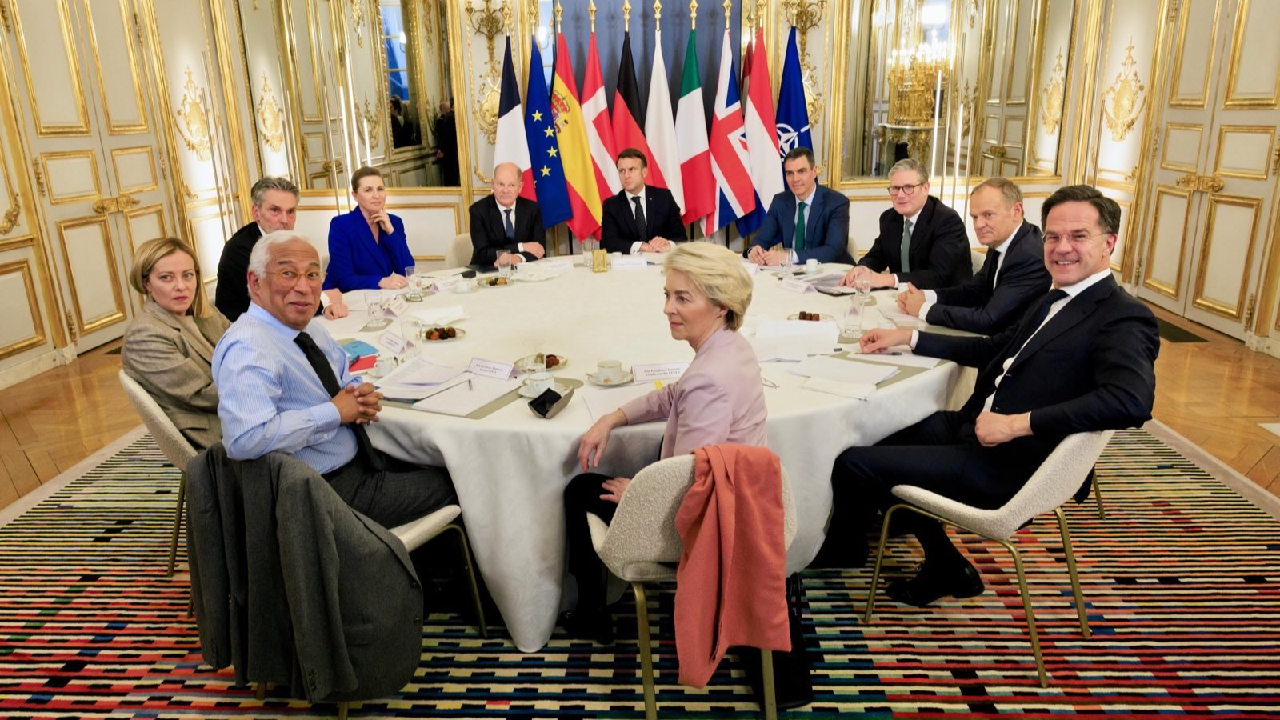'Europe stands firm against US tariffs': A 'Step in wrong direction'
As Donald Trump's second term in the White House nears the one-month mark, Europe is grappling with the reality of at least two sets of US tariffs and what they mean for the continent.

Ahead of the German elections, Chancellor Scholz states 'Europe is strong'
The Trump administration's announcement of 25 percent import tariffs on all steel and aluminum shipments entering the US, effective March 12, along with a plan to calculate and impose reciprocal tariffs on America's trade partners, has met a cool reception in Europe. With Germany’s elections approaching, Chancellor Olaf Scholz has expressed his clear preference for free trade rather than protectionism.
"Free trade is a big advantage, and much of the growth in the world is because of free trade," Scholz remarked in an interview with Bloomberg TV on Sunday. He added, "It must be fair free trade but free trade is better than tariffs and protectionism."
According to Reuters, Germany boasted a $72 billion trade surplus with the US in 2024.
From the EU perspective, Scholz indicated a readiness and capability to negotiate with the US from a position of strength. "When it comes to the EU, I think everyone knows we're a big economic area with a lot of strength ... We are strong enough to react to everything that's harming the European economy," he noted, and added, "I'm sure it's better if we agree to something that helps all of us and it's good to know that Europe is strong enough to act and to react."
European Commission promises to 'react firmly and immediately'
In a statement released on February 14 in response to Trump's announcement of reciprocal tariffs, the European Commission—the EU's executive arm—expressed that it viewed the proposal as a misstep and committed to a firm and immediate reaction against "unjustified barriers to free and fair trade, including when tariffs are used to challenge legal and non-discriminatory policies." The statement also underscored the potential negative impact of the tariffs on US citizens.
"The EU maintains some of the lowest tariffs in the world and sees no justification for increased US tariffs on its exports. Tariffs are taxes. By imposing tariffs, the US is taxing its own citizens, raising costs for business, stifling growth and fuelling inflation. Tariffs heighten economic uncertainty and disrupt the efficiency and integration of global markets," the European Commission’s statement said.
As detailed on the European Parliament's website, the EU had a €48 billion trade surplus with the US in 2023 from a total trade flow of €1.6 trillion.
UK bolsters steel industry with $3.15 billion plan
One significant aspect of Trump's steel and aluminum tariffs is the removal of previously granted exceptions and exemptions from a similar tariff implemented in 2018. For the UK, Europe's second-largest economy, lawmakers in Westminster are reportedly preparing to make a renewed case for exemptions to their US counterparts.
UK Business Secretary Jonathan Reynolds informed the BBC that imposing tariffs on UK steel "would be negative for ourselves, it would be negative for the US as well," and emphasized that the UK could provide "very specialized" steel and aluminum exports while tariffs would increase costs for US taxpayers.
Although the UK enjoys a services-driven trade surplus with the US, its goods trade remains balanced, with approximately £400 million worth of UK steel exported to the US annually, as reported by PMG.
The Starmer government appears to be adopting a "wait and see" strategy. Senior UK minister Pat McFadden was quoted by The Guardian saying, "sometimes tariffs are announced, a couple of days later, they are unannounced."
Concurrently, a new initiative has been revealed to support the UK steel industry amid the threat of tariffs, with the government pledging a $3.15 billion investment funded by the nation's sovereign wealth fund, according to Bloomberg. This plan is expected to capitalize on increased steel demand in the UK, including proposals for a new runway at Heathrow Airport.
European leaders have been outspoken in their belief that Trump’s tariffs are misguided. French President Emmanuel Macron recently told CNN, "Honestly, I don't think it should be the top priority."
Macron elaborated, "The integration of the value chain between Europe and the US is super high ... It means if you put tariffs on a lot of sectors it'll increase costs and create inflation in the US. Is it what your people want? I'm not so sure."
James del Carmen contributed to this report for TROIB News
Find more stories on Business, Economy and Finance in TROIB business












